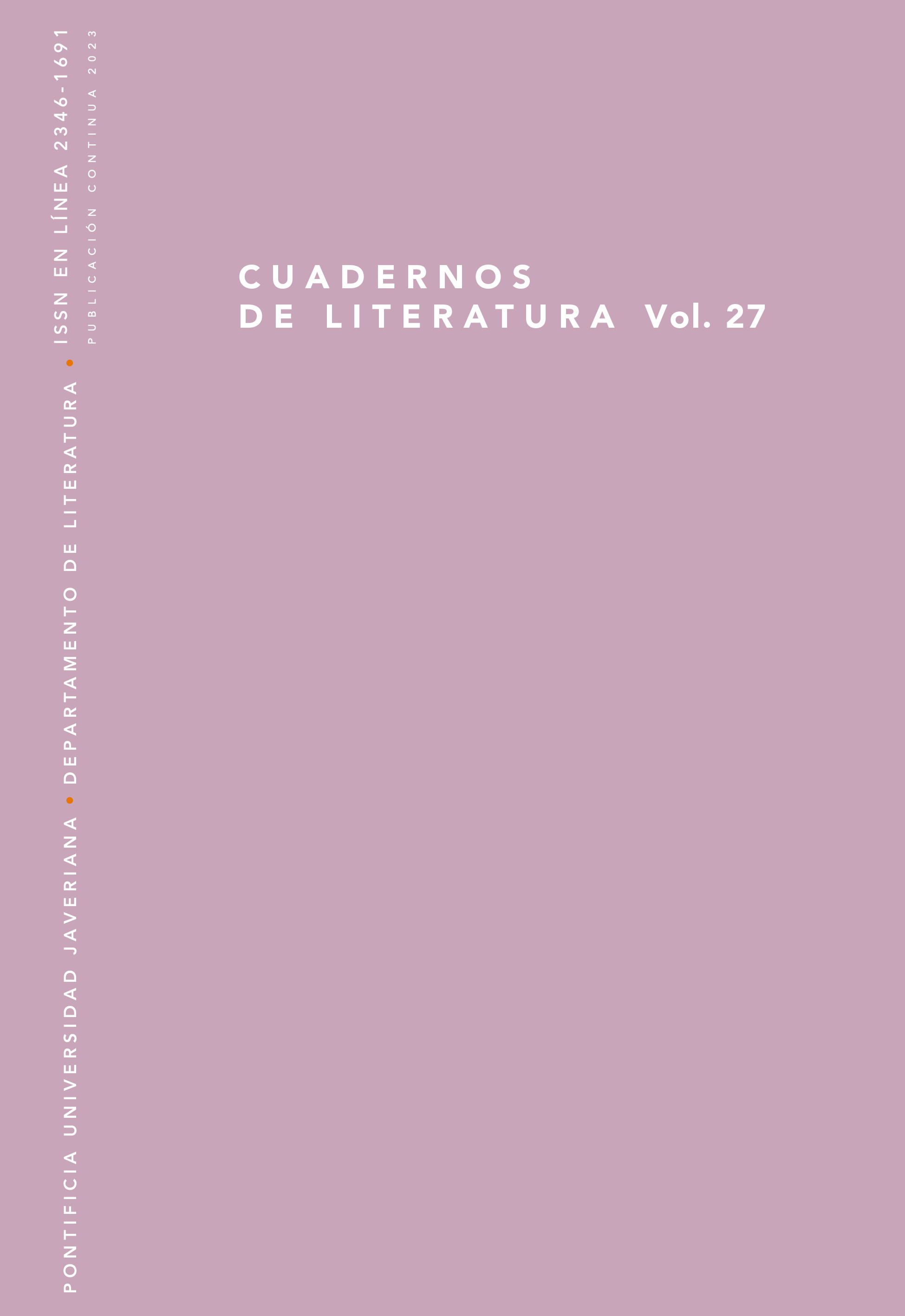Abstract
This paper rescues the forgotten Mexican poet Concha Urquiza (1910-1945) from three keys: the peripheral place that women occupied in the dominant literary circles during the interwar period; the use of religiosity as dissidence in the face of the crisis of the historical avant-gardes and the advent of the postmodern paradigm; and the construction of women’s genealogies as a feminist strategy. This analysis reinterprets, through these keys, the profound meaning of her poetry as a modern appropriation of the mystical tradition. Also, two recoveries of Urquiza as mater: Cristina Rivera Garza’s feminist reading; and Roberto Bolaño’s affirmation of the modern as resistance, as shown in Los detectives salvajes.
Abreu Mendoza, Carlos. “Cristina Rivera Garza: Transgresión y experimentación con los límites”. Cristina Rivera Garza. Ningún crítico cuenta esto. Editor Oswaldo Estrada. Ediciones y Gráficos Eón, 2010, pp. 291-312.
Alvarado, José Antonio. Prólogo a Concha Urquiza. Junio, de lluvia vestido. Jitanjáfora, 2006, pp. 5-10.
Anaya, José Vicente. Brota la vida en el abrazo. Poesía mística y cotidianidad de Concha Urquiza. Una biografía oral. Cuadernos de Veracruz, 2007.
Anaya, José Vicente y Heriberto Yepes. “Los infrarrealistas. Testimonios, manifiestos y poemas”. Replicante, volumen 3, número 9, 2006, pp. 135-147.
Benjamin, Walter. “La obra de arte en la época de su reproductibilidad técnica”. Discursos interrumpidos, I. Técnica. Taurus, 1973, pp. 17-33.
Bolaño, Roberto. Los detectives salvajes. Anagrama, 1998.
Bolaño, Roberto. El gaucho insufrible. Anagrama, 2003.
Bolaño, Roberto. Entre paréntesis. Anagrama, 2004.
Castellanos, Rosario. “Presencia de Concha Urquiza”. Las Letras Patrias, número 5, 1957, pp. 146-152.
García Gutiérrez, Rosa. “Epílogos y epitafios de la vanguardia: nostalgias, parodias, abjuraciones, inmolaciones (Los detectives salvajes)”. La vanguardia y su huella. Editora Selena Millares. Iberoamericana, 2020, pp. 127-147. Garibay, Ricardo. Prólogo a Concha Urquiza. Nostalgia de Dios. Delegación Política de Cuajimalpa, 1985, pp. 5-19.
León Vega, Margarita. “El discurso erótico en la poesía de Concha Urquiza”. Actas XII. AIH (1995). https://cvc.cervantes.es/literatura/aih/pdf/12/aih_12_7_006.pdf
León Vega. “La imagen del yo en el diario de Concha Urquiza: de la impostura del yo a la impostura del otro”. Acta Poética, No. 21, 2000, pp. 347-370.
León Vega. “Concha Urquiza: poemas de la adolescencia (inéditos y no recopilados)”. Literatura Mexicana, Vol. 18, No. 2, 2007, pp. 231-241.
León Vega. Concha Urquiza: “De principios contrarios engendrada”. Poesía y prosa de amor a lo divino. Tesis Doctoral. México: UNAM, 2008.
Magdaleno, Mauricio. “Poesía de Concha Urquiza, Ábside, 1947, Vol. 11, No. 3, pp. 459-462.
Méndez Plancarte, Gabriel. “Introducción” a Concha Urquiza. Obras. Poemas y Prosas. México: Bajo el signo de Ábside, 1946. ix-l.
Perdomo, María Teresa. Concha Urquiza y su obra. Michoacán: Gobierno del Estado de Michoacán/ Secretaría de Cultura de Michoacán/ CONALCULTA, 2013.
Rivera Garza, Cristina. Los textos del Yo. México: Fondo de Cultura Económica (Letras Mexicanas), 2005. Edición de Kindle.
Rivera Garza, Cristina. Los muertos indóciles. Necroescrituras y desapropiación. México: Penguin Random House, 2019. Edición digital.
Ruiz Godoy, Judith Aurora. Lo sagrado en la poesía de Concha Urquiza. Tesis de Maestría. México: Universidad Iberoamericana, 2004.
Sánchez Aparicio, Vega (2017). “Escrituras mías de mí: la comunalidad en Cristina Rivera Garza”. Territorios del presente. Tecnología, globalización y mímesis en la narrativa en español del siglo XXI, editado por Jesús Montoya y Natalia Moraes Mena. Bern: Peter Lang.135-149.
Urquiza, Concha. Obras. Poemas y Prosas. Edición y prólogo de Gabriel Méndez Plancarte. México: Bajo el signo de Ábside, 1946.
Urquiza, Concha. El corazón preso. Edición de José Vicente Anaya. Toluca: Universidad Autónoma del Estado de México, 1985.

This work is licensed under a Creative Commons Attribution 4.0 International License.



